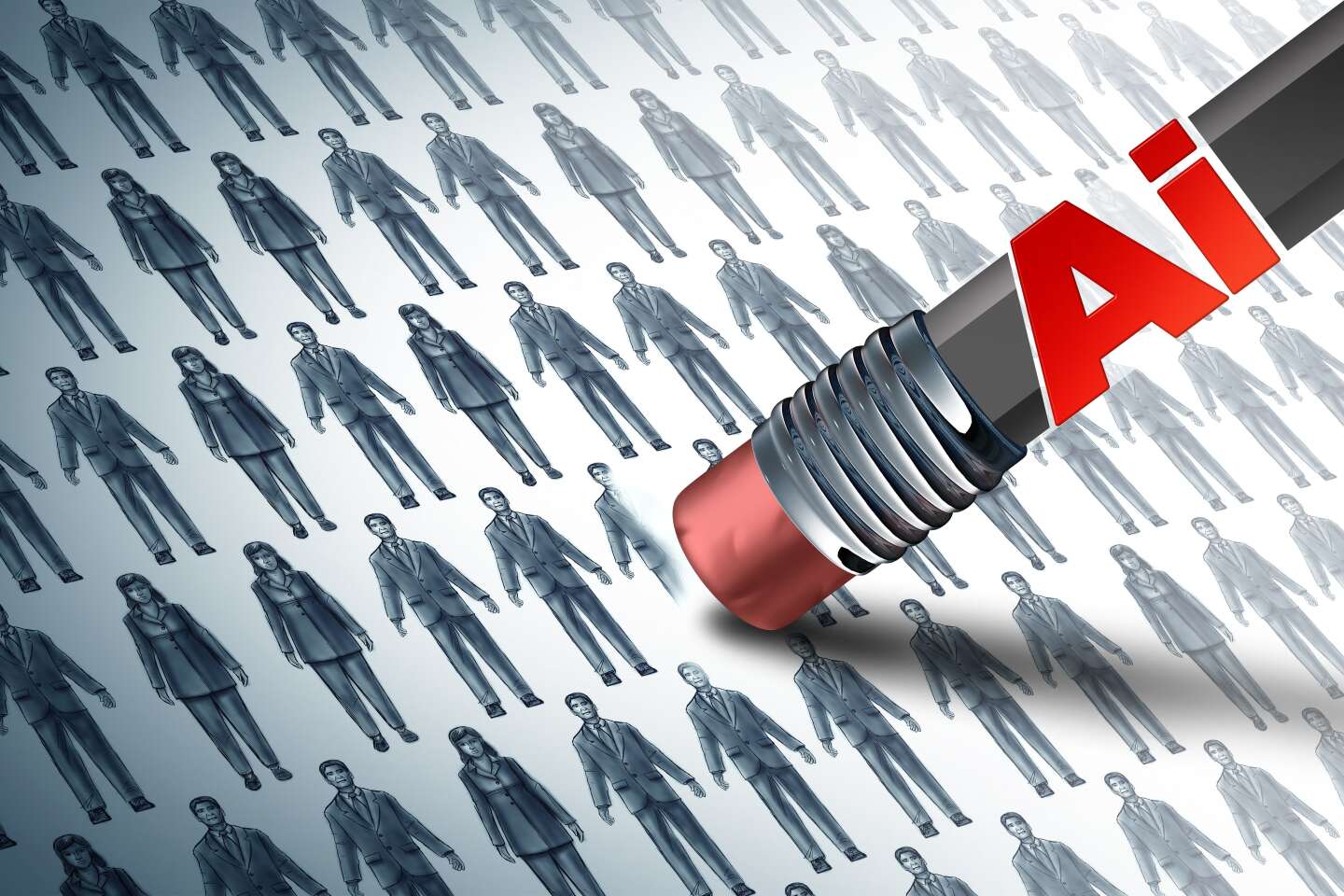Artificial Intelligence (AI) should have a positive impact on employment, but we must prepare for the disappearance of certain professions and anticipate the transformation of all others: these are the conclusions of the Commission on Artificial Intelligence on the future of the labor market, in his report submitted to the President, Emmanuel Macron, Wednesday, March 13.
To formulate this generally reassuring observation, the experts rely mainly on a study conducted using data from INSEE. It is concluded that the total number of jobs in the observed companies is increasing faster in the 321 that implemented AI systems between 2018 and 2020 than in the 897 others that did not implement anything in this area. The choice of these technological solutions has, in fact, made it possible to develop new professions, the existence of which was not foreseen in the company before 2018.
Furthermore, the impact on productivity for certain functions is such that it far exceeds the potential capabilities “displacement effect”, or the elimination of certain positions. This is also reflected in a study by the US National Bureau of Economic Research, which looked at offering an AI tool that helps a company’s customer service representatives respond to requests, via a chat that provides automatic responses: employees who had access to it, saw their productivity increase by 25%.
Social issues
“Jobs directly replaceable by AI would represent only 5% of jobs in a country like France”, the report notes. However, not all scientific literature shares the same optimism: according to an analysis conducted in January by HEC professor Antonin Bergeaud, automation affects around 20% of workers. The professions of secretaries, accountants and telemarketers, both of which are highly exposed to AI and involve few complex tasks, are the most threatened.
Without replacement, the work of a majority of employees will be affected regardless. According to studies, a variable proportion of jobs are partially affected by automation. Faced with these divergent results, the committee recommends investing more in research into the consequences of AI for employment. Lacking perspective, the specific effects of generative AI, which was democratized at the end of 2022, are virtually unknown.
To respond to the“planned obsolescence” training of certain skills is made an important topic by the committee. Experts recommend investing 200 million euros over five years to strengthen the offer and methods of vocational training, through awareness-raising tools, especially for job seekers.
